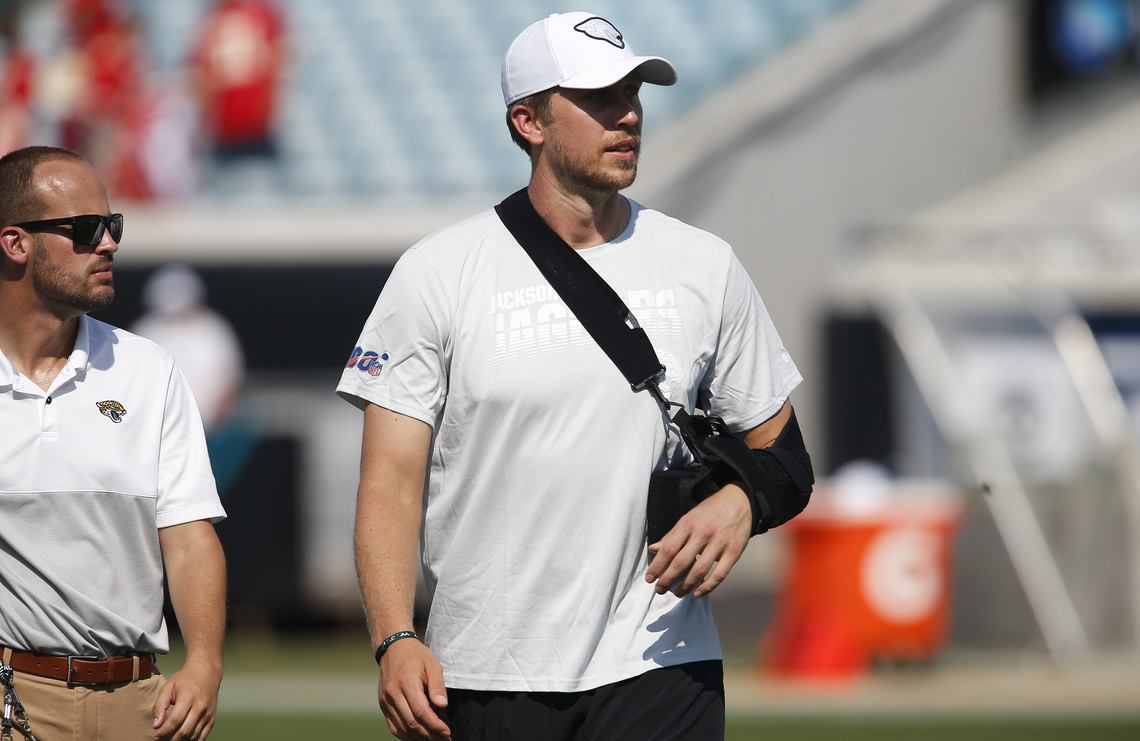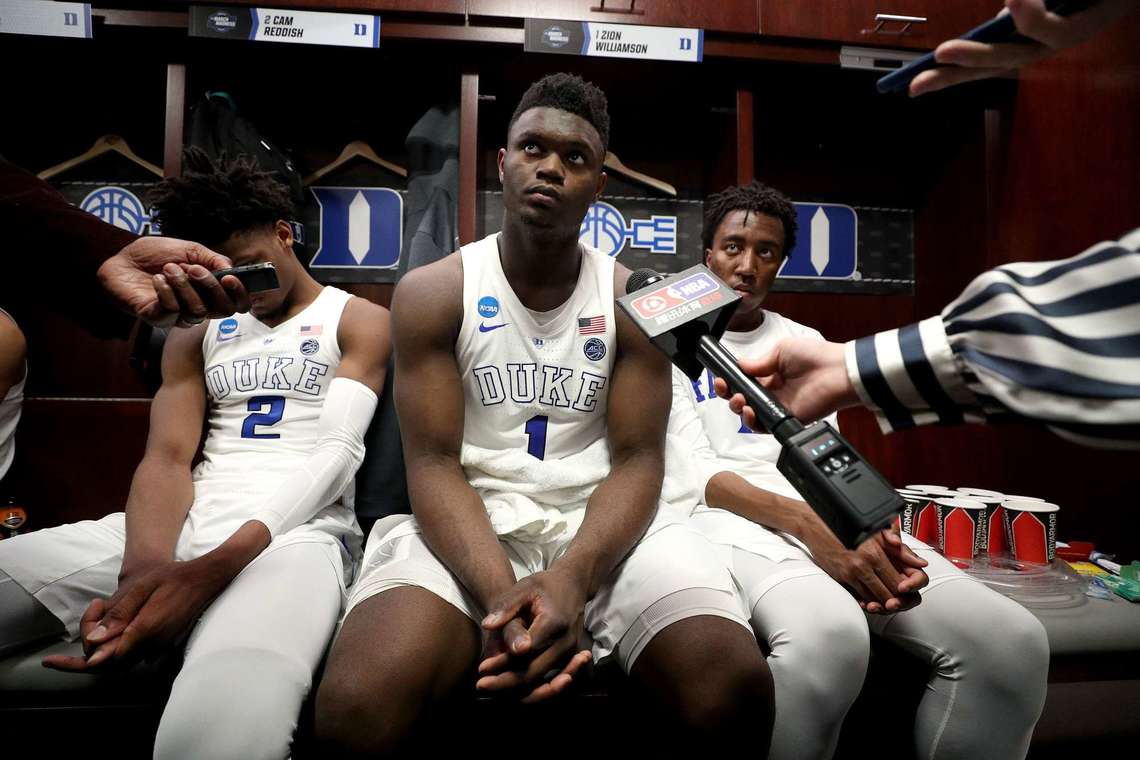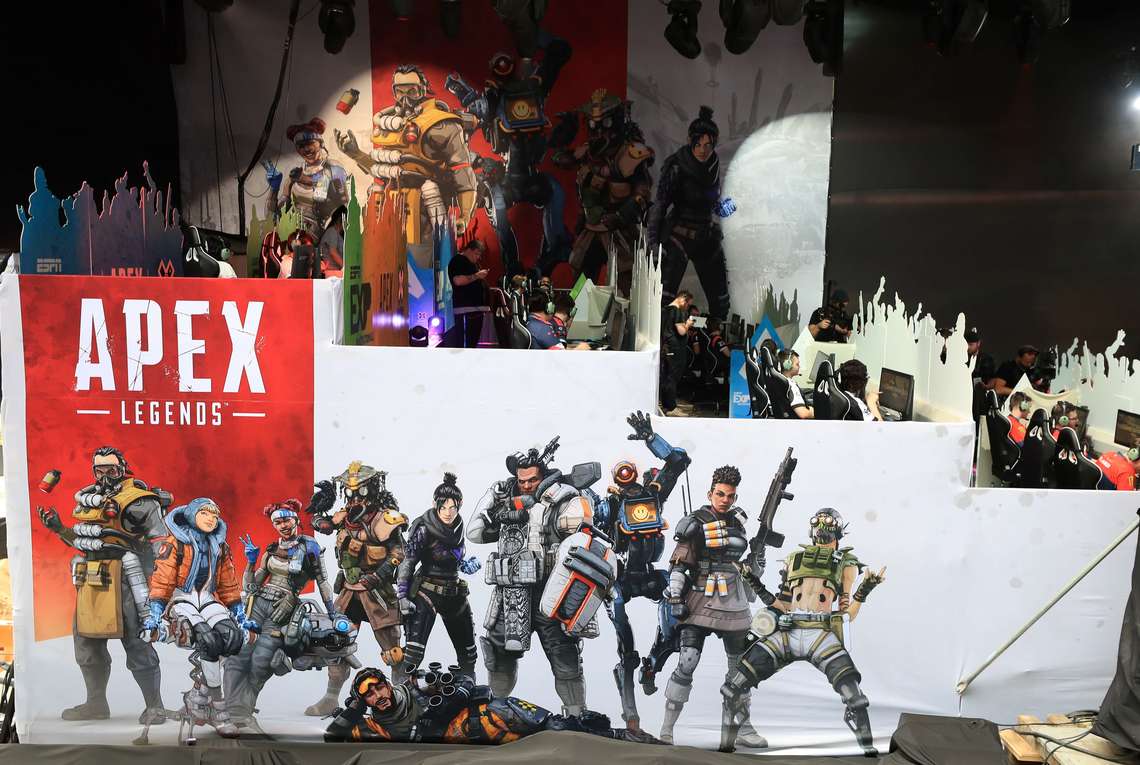Tokenization offers professional athletes a vehicle to grow their earnings and not risk blowing it all on useless junk. | Image: Shutterstock On September 13th, CCN reported that Brooklyn Nets point guard Spencer Dinwiddie plans to convert his million contract into digital tokens. The move allows the NBA player to receive a lump sum payment as investors purchase the digital asset. Spencer Dinwiddie will lose out on some future income to pay investors. However, the lump sum payment gives the Nets point guard the chance to invest his earnings elsewhere. The CEO of ShapeShift is excited about Dinwiddie’s decision. | Source: TwitterErik Voorhees believes that
Topics:
Kiril Nikolaev considers the following as important: Blockchain News, Cryptocurrency News, nba, Op-ed, Smart Contracts, spencer dinwiddie, Sports, tokenization
This could be interesting, too:
Bitcoin Schweiz News writes Tokenisierung live erleben: Von der Regulierung zur Praxis am 10. April in Zug
Christian Mäder writes Bitpanda startet DeFi Wallet und öffnet die Tür zu Web3
Bitcoin Schweiz News writes OpenSea: Der Marktplatz für NFTs und digitale Sammlerstücke
Bitcoin Schweiz News writes Blockchain in Deutschland: Wie das BSI über Chancen und Risiken aufklärt

On September 13th, CCN reported that Brooklyn Nets point guard Spencer Dinwiddie plans to convert his $34 million contract into digital tokens. The move allows the NBA player to receive a lump sum payment as investors purchase the digital asset.
Spencer Dinwiddie will lose out on some future income to pay investors. However, the lump sum payment gives the Nets point guard the chance to invest his earnings elsewhere.
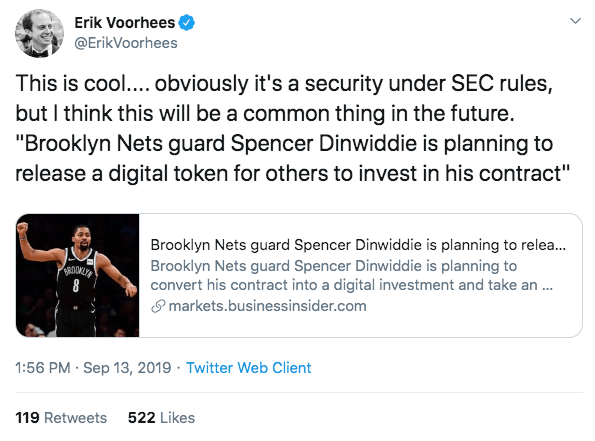
Erik Voorhees believes that contract securitization will be a common practice in the future. However, securitization alone may do professional athletes more harm than good. For instance, receiving payment in a lump sum may tempt players to go on a spending spree. Nevertheless, there’s a strategy that enables pro players to tokenize their contracts while increasing their net worth at the same time.
Studies Show that Pro Athletes Go Broke After Two to Five Years
News of professional athletes filing for bankruptcy is no longer surprising. For instance, the former Philadelphia 76ers star “The Answer” Allen Iverson filed for bankruptcy after banking $150 million throughout his decorated NBA career. Three-time NBA All-Star Antoine Walker also went broke after earning $108 million. We’re just scratching the surface.
CNBC reported that 60% of NBA players are in financial distress within five years of leaving the league. Additionally, 78% of NFL players go broke two years after the expiration of their final contract.
Also, CNBC writes that reckless spending is one of the reasons why professional athletes go bankrupt. For instance, Allen Iverson reported that his monthly expenses included $10,000 on clothes, $10,000 on entertainment, and $10,000 on groceries.
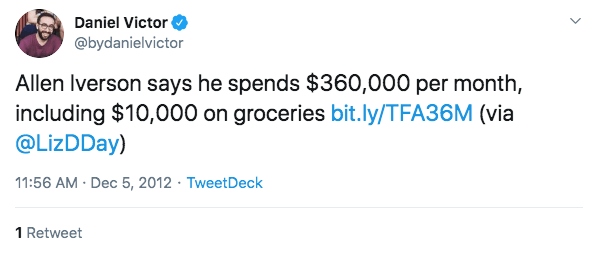
In addition, Financial Advisor at MVP Wealth Carlos Diaz Jr. spoke to CCN on why pro athletes go broke. He said,
Most financial advisors will say that professional athletes lack financial education to make informed decisions. While this is true as many aren't exposed to financial literacy in high-school and limited knowledge in college, it's mostly due to ignorance and relying on a financial advisor to do everything.
The tendency to blow it all, combined with the lack of financial education, are very good reasons why getting a lump sum payment may not be a smart financial decision for many professional players. However, players can safeguard their earnings by tokenizing their contract and then leveraging smart contracts.
The Potential of Smart Contracts to Secure and Increase Wealth
Players can now protect their wealth without the help of financial advisors. They can follow Spencer Dinwiddie’s strategy to securitize their contracts but they can also take it a step further. By using smart contracts, they can lock their coins and redeem them after certain conditions such as time preferences and emergency situations are met.
Here’s how players can use smart contracts to their advantage:
- Tokenize their contract.
- Get lump sum payments in the form of strong cryptocurrencies such as Ethereum or bitcoin.
- Use smart contracts to release certain amount of coins based on the time preference of the athlete (monthly or biweekly). This helps protect against reckless spending and ill-advised investments.
- Add provisions in the smart contract for crisis situations such as medical emergencies.
- Convert coins into fiat currency on online exchanges or use Bakkt to facilitate the process.
This may look like a lot of steps but everything can be automated through smart contracts.
While players can also store their income in a financial escrow, there’s never a 100% guarantee that the institution holding the money will release the funds even if the conditions are met. Black swan events such as bankruptcy or economic meltdowns can hinder the release of funds.
On the other hand, smart contracts are objective. Once conditions are met, the coins will be released with 100% certainty.
More importantly, getting a lump sum payment in bitcoin has the potential to increase a player’s net worth. Saving fiat currency like the U.S. dollar decreases the value of a person’s wealth due to inflation. In contrast, bitcoin’s hard cap supply of 21 million eliminates inflation. With this property, it is likely that value of the coins will rise over time.
In short, cryptocurrencies offer pro athletes a shot at protecting their hard-earned income while raising their net worth over the years.
Last modified (UTC): September 19, 2019 1:57 PM

